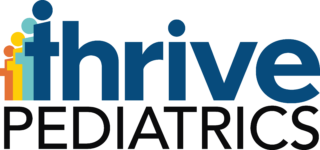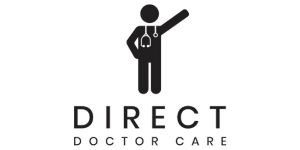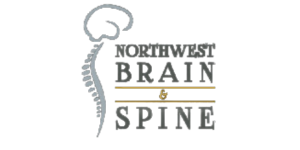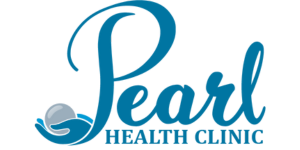
Medman_Molly Ramsay: Audio automatically transcribed by Sonix
Medman_Molly Ramsay: this mp3 audio file was automatically transcribed by Sonix with the best speech-to-text algorithms. This transcript may contain errors.
Jay Holmes:
Welcome to the Medical Management Podcast, a podcast focused on helping you level up your practice. Through interviews with some of the most successful leaders in the industry, we help uncover resources, tools, and ideas to help you level up your practice. Thanks for tuning in, and we hope you enjoy today's program.
Jesse Arnoldson:
Hello and welcome to the Medical Management Podcast. I'm your host, Jesse Arnoldson today, I'm excited because I'm joined by one of my partners here at MedMan, Molly Ramsay, and we're going to be discussing a couple of topics all related to bringing on and developing teams within our organizations. Welcome back, Molly!
Molly Ramsay:
Thanks for having me back, Jesse, I appreciate it.
Jesse Arnoldson:
Of course! No, I'm excited. So we're, you know, for our listeners, we're going to break this interview into two conversations. The first one, we're going to focus on the ideal onboarding process, you know, creating an experience for this new person coming on. And then in the next interview, we're going to get into maybe what phase next looks like for this whole staffing roller coaster that we've been on for the last couple of years. So Molly, you and I have talked about this even more recently in our conversations about maybe providing some sort of book gifts for our new administrators, but, it kind of goes back to this bigger question of, you know, why we need to lay focus on the first day, first week, this onboarding of new employees, can you maybe share some of your opinions around what it should look like and why it's so important?
Molly Ramsay:
Absolutely, happy to! And we've had more experience with onboarding this year than I can ever remember and MedMan.
Jesse Arnoldson:
We're not immune to.
Molly Ramsay:
Than I've been at.
Jesse Arnoldson:
The tragedies and craziness of it, of what's going on.
Molly Ramsay:
Yeah, exactly! Yeah. So for the listeners out there, you know, we're a small to midsize organization, but we've experienced a significant amount of growth this year, so we were just doing a year in review in terms of the number of employees we onboarded this year, and we actually had 17 employees on board. A couple of those employees were rehired, so that makes it a little bit more simpler. So we've definitely been practicing. And that number may not seem like a lot to some individuals and larger organizations, but for us, that's a significant number.
Jesse Arnoldson:
What are we now, Molly? We're at like total 40 employees?
Molly Ramsay:
Exactly. We're right about 40 employees. So that's a big, big number for an organization our size, and, you know, prior to this year, we would do a couple of new hires a year, so we just didn't have a lot of practice with the onboarding, which kind of allows for us to really put our time and attention and get really excited about those new hires when they did join our organization. But at the same time, we didn't have our process maybe dialed in as well as we would have liked.
Jesse Arnoldson:
Yeah.
Molly Ramsay:
And so it's been a good year for us in terms of learning and when it looks like what good onboarding experience looks like or why we want to put an emphasis on that is really it.
Jesse Arnoldson:
It starts with the why, yeah.
Molly Ramsay:
Yeah, exactly, why, you know why. So for us, when I think of onboarding, it's not just the first day or the first week, it's actually the first time the employee has an interaction with us, and that's when they're applying for the job or their first hearing about us. That's when I think our onboarding actually starts is through that interview process because they're starting to kind of lay the framework of what are their expectations of us. Can they expect that we're going to be timely communicators, that we're professional in how we handle candidates and the process? Do we have a process? You know, like do we look like we're, you know, presenting as a professional, legitimate organization in a professional manner? So those are all ways in which we're kind of setting the stage for us as an organization and what we will look like as an employer and can kind of gravitate and grab the attention of a perspective candidate of like, hey, like, these guys appear to know what they're doing.
Jesse Arnoldson:
Right!
Molly Ramsay:
Just through the interview process. I might want to kind of follow that pathway and spend a little bit more time considering this opportunity rather than this opportunity on the other side, where I'm not getting as timely of responses back from the interviewers or my questions regarding the opportunity.
Jesse Arnoldson:
It really does better, that, that attention that they get, it does matter, it does matter to them.
Molly Ramsay:
Yeah. And when we're thinking about, and we're going to talk a little bit about this later on in terms of the staffing crisis, as employers, you really have to be able to differentiate yourself and it certainly comes down to pay and benefits, et cetera, but it's also those little, little nuances, the little things matter and make a big difference, and so that is one of those kind of quote-unquote little things is the interview process and paying attention to how you're treating people and kind of what your process is for moving people through it in a timely fashion.
Jesse Arnoldson:
Right.
Molly Ramsay:
But now going back to your original question and kind of got off topic there for you, Jesse.
Jesse Arnoldson:
No, that's OK.
Molly Ramsay:
You know what? You know, why it's important. You know you don't want an employee to show up on the first day or as we make that job offer and kind of feel like it's just like just another day or that we're not prepared for them and that they are just kind of an afterthought. So, you know, making sure that we're in communication with a prospective employee to say, hey, we're looking forward to you starting on Monday, we know you're starting on Monday, we're looking forward to it, we have a plan for it, and you know, this is what the next thing, or the first couple of days are going to look like, just by having that communication with them and articulating like, hey, you know, you're coming, we know it and we're looking forward to it, that gets them excited and kind of eases the first day jitters as well for them, so.
Jesse Arnoldson:
That makes sense, and I'm fortunate enough to have been able to play a small part in the onboarding of one of our most recent hires. And that is a comment that she made to me, she said, you know, I come from an HR background and so I recognize, you know, I see game when I, you know, when it's there and, you know, I felt appreciated, it felt really nice, you know, everything that Molly and Jamie did to kind of prep me for today, so, you know, having a schedule, extra training, extra time with different individuals, it was really, it made an impression on her and it was she brought that up to me, it made me as we were thinking about this podcast interview, that's the person I had in mind when I asked you to speak on this topic like, oh, this made a difference, this started out right.
Molly Ramsay:
Yeah. And you know, and it takes a little bit of effort and planning on our part, but it goes a long way. And as someone is starting their first day feeling like they're an afterthought, you know you have a big uphill battle.
Jesse Arnoldson:
Yeah.
Molly Ramsay:
Big hill to climb. And to get them excited about the organization and to instill a sense of loyalty and like the I want to do good for this organization when, you know, they've kind of only done, you know, 60 percent of what they could have done to make it a good experience.
Jesse Arnoldson:
Right.
Molly Ramsay:
So, you know, taking that little bit of effort to ensure that you kind of have thought and thought ahead, so being proactive of like, OK, it's, you know, the weather is going to be cruddy, it's, you know, December 15th that the employee is starting, the weather, it's going to be kind of cruddy, give them a little bit of direction this is where you should park, you know, or what to expect, what to plan for, just take those little nuances.
Jesse Arnoldson:
Can you maybe share with us? Let's break this into two things, the bare minimum, right, the basics that you need to do almost like a checklist, and then and then we can get to maybe the funner part of the conversation, what are those extras you can do to make a real, like, fun impression or solid impression on the person? But let's start with the basics what, what Molly should any hiring manager make sure is ready to go day one?
Molly Ramsay:
Yeah, and certainly get to just put out there that we have fallen down.
Jesse Arnoldson:
We have!
Molly Ramsay:
First time, certainly, on a couple of occasions, yes.
Jesse Arnoldson:
Sure.
Molly Ramsay:
But you know, one of the biggest things in terms of absolutes is just having a schedule for that first day and having someone accountable to make sure to welcome that person and who's going to be kind of the designated trainer or orienter that day.
Jesse Arnoldson:
Right.
Molly Ramsay:
The other piece of it is just having the workstation. Where is this person, that there is dedicated space for this person to set up shop, even if it's temporary, but it's known, you know, that they're, they've got dedicated space that they'll spend the first couple of days or if it's their permanent space, that it's all set up and ready to go for them. And that looks like, you know, do they have the equipment that they need? A computer, email, access to an EMR, you know, all the credentials that they need to access the systems to do their job.
Jesse Arnoldson:
Right! I know it sounds obvious, but I have myself brought on an employee and not had their computer, their, or their phone ready or something not ready or I, I scheduled them to be there on a day I wasn't there, so I, these things may sound captain obvious, but.
Molly Ramsay:
Right.
Jesse Arnoldson:
But you know, the best of us have messed it up before, so.
Molly Ramsay:
I, absolutely, you know. And then the other thing, just in terms of just kind of the bare bones is that they know who to go to if they do have questions or things come up, so it's, you know, who is their direct supervisor, who's the point person for the area that they're most commonly going to be interacting with? Who would be a good resource for them? Who is the IT guru or IT.
Jesse Arnoldson:
Right.
Molly Ramsay:
Company? Those are kind of the fundamental people that they should be able to ask questions from, because the last thing someone wants to be is helpless.
Jesse Arnoldson:
Yeah.
Molly Ramsay:
Whether their reliant on the administrator who might be in a meeting for four hours on that first day and that they're just kind of sitting there twiddling their thumbs and feeling kind of silly that they can't be proactive because I think a lot of people want to be empowered and want to put forth a good impression that they can demonstrate their critical thinking skills and in troubleshoot some issues on their own. But we got to give them a little bit of, you know.
Jesse Arnoldson:
Right.
Molly Ramsay:
Tools in the toolbox here to give them a little bit of guidance of this is where you go if you, you have some issues, and I think that goes a long way when they feel like they're a little bit empowered to be able to help themselves.
Jesse Arnoldson:
No, I like that. I mean, it shouldn't be the administrator like, you should lay out, OK, here are the different types of questions you may have, and here's where to go for them, I like that, because you know what? That sets me up as the manager administrator a little bit better too, because this person isn't going to come to me for absolutely everything. And then I'm playing middleman for the rest of the day because I didn't assign that out properly, right?
Molly Ramsay:
Yeah, and there were reasons for you to not maybe be responsive. And so again, you know, doesn't put forth the best impression, the new hire, because you want them to feel like they're a priority.
Jesse Arnoldson:
Yeah, yeah. Absolutely, absolutely. Can you tell me maybe some of the things that you've been thinking about most recently, maybe more like the innovative like, OK, we've done the foundational stuff, can we start thinking about little things that maybe set us apart, MedMan apart as the employer of choice? What kind of fun ideas have you had recently for bringing somebody on?
Molly Ramsay:
Well, we, you alluded to it at the beginning of our conversation was we just recently had a conversation at our leadership meeting about giving a new hire a library, so within our organization, we have a lot of individuals who are well-read, they enjoy reading a lot of different books. We've got a lot of different podcasts that we enjoy listening to, you know, there's just lots of different ways in which we like to gather some information and kind of be inspired in terms of life and business, and so what we talked about is, is that there are a number of books that we all feel kind of either advanced the way in which we wanted to run the business of MedMan or give an individual some inspiration in terms of skill sets that they're looking that we would love for our employees to embody. And so we talked about presenting our new hires with kind of a mini library or some books to get their, their MedMan library started. And so that, I think, is just something in terms of it, does a couple of things that re, reconfirm that we are putting an emphasis on something that's really important to us through choosing a book, you know, on a topic that's important to us. It also just demonstrates kind of the professional development or the growth that we put a lot of importance on is that we want our individuals to not just be complacent, but to grow as individuals and professionals, and so we're kind of giving them some tools to kind of inspire them to do so through that literature, and it creates this common language. So all of our, what our vision is, if all of our new hires have read X, Y and Z books, then we're all speaking a common language. And through that common language, you start to enhance your culture, is a contributor to your culture, when you've got the same terminology and the same language and kind of that shared experience of like, oh yeah, I remember that story in that book, that was so great, you know? And everyone can kind of contribute to that conversation and benefit from it.
Jesse Arnoldson:
Absolutely. No, I love that! I was in a clinic today, and one of the things that I saw that I really loved and we do it at MedMan too, they had a stockett logo wear, ready to go, and what I mean by that is it's either a sweater or a pair of scrubs or a jacket that had their branded logo on it. And for anybody's first day, they had something to be able to hand them, that kind of branded them as part of their clinic. You know, it was really cool to see that.
Molly Ramsay:
Well, and I think that's great to see because often times, you know, a lot of organizations, you know, we have this rule of thumb that at 30 days you're eligible for benefits, or at 90 days you get to receive a credit for, you know, some type of scrub or, you know.
Jesse Arnoldson:
At year you get into retirement. Yeah, yeah.
Molly Ramsay:
Yeah, exactly. We have these milestones that people have to hit, but usually there's this waiting period before they're able to participate in or benefit from something that we see as kind of a benefit, whether, it's in a formal way or in an informal way. And so if we give someone something on the very first day, I think it's, you know, it kind of like demonstrates to the employee that this employer is serious about me, they're willing to invest in me in the very first day, and I'm part of them from day one. Like, I don't have to earn my street cred.
Jesse Arnoldson:
Right.
Molly Ramsay:
With the organization by getting the 30 day-mark under my belt like I'm, I'm part of them from day one and that I think you're going to see an increase in kind of loyalty to the organization as a result.
Jesse Arnoldson:
I think so, I completely agree. Well, this has been super helpful and I hope that it helps our listeners to just pay attention to it. Take some time to think about what it's like to come into your organization, what are the little things and the big things that matter most to this person? And you know, I think it's fair to, to go and ask the people that are already there inside the organization what was good, what was bad, what could be better, and, and they'll probably share a lot of stuff that's sitting in your blind spot that you didn't realize, you know, maybe it took me two days to get my email up and going, oh, yeah, because if we don't start it two days prior, then it's not going to work, you know? That kind of stuff. So I just hope that people will really dedicate the time, money, and effort to making that experience a good one, not just a neutral one and especially not a bad one. But Molly, thank you for being on, appreciate your insight.
Molly Ramsay:
Happy to be a part of it. Thanks, Jesse.
Jesse Arnoldson:
Right, and for all of our listeners, tune in next week, we'll talk a little bit more about what might be coming down the pipeline as far as the next phase of kind of the staffing crisis resignation, you know, what's coming next? And for anything else that MedMan does, for show notes, services, and other episodes, please visit us at MedMan.com.
Jay Holmes:
Thanks for tuning in to the Medical Management Podcast. We hope you enjoyed today's featured guest. For the show notes, transcripts, resources, and everything else Medman does to help you level up, be sure to visit us at MedMan.com.
Sonix is the world’s most advanced automated transcription, translation, and subtitling platform. Fast, accurate, and affordable.
Automatically convert your mp3 files to text (txt file), Microsoft Word (docx file), and SubRip Subtitle (srt file) in minutes.
Sonix has many features that you'd love including secure transcription and file storage, world-class support, automated subtitles, powerful integrations and APIs, and easily transcribe your Zoom meetings. Try Sonix for free today.
Episode Summary
Developing or bringing on teams can be a daunting experience for most managers, we know that first hand!
In this two-part special with Molly Ramsay we are breaking through how we can create a better experience for those members just joining the team and how we can improve the onboarding process. She believes that the onboarding process starts with the interviews and how they are presenting the company to the candidates. She also gives tips on how to build up someone’s first day. Molly also finalizes this interview sharing innovative ways you can engage your employees through simple actions!
Tune in and don’t miss the next episode with Molly!
About our guest – Molly Ramsay
Molly Ramsay is the Corporate Operations Director at MedMan. She has a Bachelor of Science in Healthcare Administration from Idaho State University. She also worked as the education and talent director and as director of human resources at MedMan.
Key Take-Aways
-
- The pandemic brought some growth to midsize organizations like MedMan.
-
- Rehiring past employees can sometimes make the onboarding process simpler.
-
- Having a designated trainer or orienter for the “newbie” will help them set up.
-
- Have a specific space for this new member, even if it’s temporary.
-
- Common language enhanced the company culture amongst employees.
Resources
-
- Connect with Molly on LinkedIn here
-
- Follow Molly on Twitter
-
- Connect and Follow Peter on LinkedIn here
-
- Discover more about Nutromics here
-
- Grab your copy of “The Obstacle is the Way” here
-
- Know more about MedMan here























